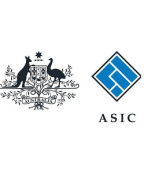The Australian securities and investment commission (ASIC) was established in 2001 under the Australian securities and investment commission act (ASIC act).The agency is an independent government agency that, by law, independently supervises companies, investment practices, financial products and services.The Australian securities and investment commission is the regulator of Australia's banking, securities and foreign exchange retail industries.With the introduction of Australia's securities and investment commission act in 2001, ASIC has brought the retail foreign exchange trading market into the daily regulatory scope, and has become an important part of the financial system of Australia, supervising together with the banking, securities, insurance and other financial industries.
The basic functions of ASIC are to maintain market integrity and protect the rights and interests of consumers.Market integrity refers to prevent market manipulation, fraud and the unfair competition, protecting market participants from the influence of financial fraud and other ACTS of unfair, to enhance investor confidence in financial markets, maintain the stability of the financial markets to protect consumers' rights and interests embodied in through the full and timely market information disclosure, ensure company, securities and options market integrity and justice to ensure the medium and small investors can obtain abundant and precise information when the rights and interests of investors was treated unfairly suffers a loss, can be compensated through the appropriate channels.
ASIC government nature and legal status of ASIC is legal in the Australian financial services and market regulators, ASIC is an independent federal agency in Australia, with the approval of the federal government, according to a 2001 parliamentary approval of the provisions of the Australian securities and investments commission act, the agency in accordance with the law, independent of Australia's financial system, financial institutions and professional workers, driving the function of financial regulation.
ASIC application program
We assist in each process of applying for business and obtaining an Australian financial services license (AFSL) in each stage.We offer two standard services and can create a package that best suits your business needs.
We work with many businesses in the financial services industry.Some examples include:
Fund management AFSL application;
AFSL application for foreign exchange broker;
AFSL application for financial planner;
AFSL application for accountants;
Binary option AFSL application;and
Trading carbon credits.
The basic steps you need to follow to obtain AFSL are as follows:
Determine what authorization is required
Select responsible manager
ASIC file draft
Additional supporting documents (if required)
Prepare continuous compliance plan and compliance assistance
Learn more about the AFSL application process and requirements.
We can provide AFSL holders with ongoing compliance support or external compliance reviews to ensure compliance with legislative and regulatory requirements for maintenance.
If you would like more information or assistance on the AFSL application, please contact us directly.
ASIC regulatory measures
1. A wide range of institutions engaged in the pension, insurance, deposit and loan industries
2. Local banking and financial institutions and international banking branches doing business in Australia
3. Securities, futures, foreign exchange, financial derivatives and other financial trading institutions
4. All institutions involved in financial product information consulting and service
5. All practitioners in the financial industry shall hold certificates and engage in financial business as required
The foreign exchange market
The foreign Exchange market is one of the most important financial trading markets in Australia. ASIC and the Australian Stock Exchange (ASX), the banking system, foreign Exchange and other financial derivatives traders are all the most important regulatory areas of ASIC.
According to the provisions of ASIC act, any financial institution engaged in financial transactions in Australia shall be certified by ASIC and apply for AFS Licence, and the foreign exchange market is no exception.At present, the financial institutions engaged in the foreign exchange market in Australia include: Banks, foreign exchange dealers, brokers, foreign exchange information providers and so on.
The formal platform must have this number (AFSL: Australian financial business license number), and only with this number can it be qualified to do financial derivatives.Only individual companies (ABN: Australian business registration code, ACN: Australian company code) are not eligible for derivatives.If you have an AFSL number you have an ABN ACN code;But people who only have ABN, ACN codes don't necessarily have AFSL Numbers.
Regulatory requirements
1. AFS Licence shall be applied for, and the designated business license shall be granted
2. PI Insurance shall be carried out for customers.
3. Shareholders and management of the company as well as the required certificated representatives shall be put on record according to ASIC regulations
4. Set up a whole set of customer complaint solutions and join the FOS dispute resolution organization
5. An exclusive account of customer funds shall be opened in a designated bank according to regulatory requirements, and shall be managed separately from the company's own funds
6. Submit the company's operating financial report regularly, conduct accounting audit regularly and submit it to ASIC for filing
7. Regularly submit customer transaction reports to ASIC for filing
In addition, ASIC has set up a whole set of supervision and management mechanism for the foreign exchange market. Whenever any customer complains about the foreign exchange market participants, ASIC requires the complainant to participate in the dispute settlement according to the procedures and ask the dealer to compensate for the damage to the customer's interests.If the regulated enterprises violate the rules, they will be severely punished or prosecuted by ASIC, and even have their financial service licenses and ordinary business licenses revoked.
Meanwhile, ASIC effectively protects the rights and interests of international investors who invest in Australian financial institutions and enjoys the same legal rights and interests as local investors.







